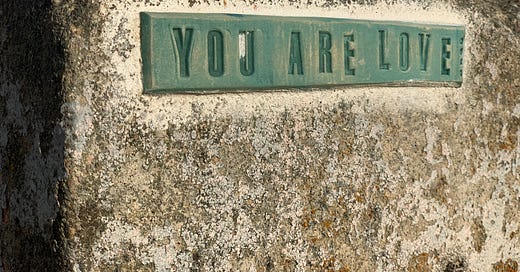But then we hug. And we try again. We dare to love again.
If healing is hard, why are we all drawn to it?
Why are there life journeys committed to it?
Why do we clumsily fly towards it like dumb little moths to a lightbulb?
If we believe it’s hard, why haven’t we deemed it impossible yet, the way we do with other things that take time and patience? Why does everyone write about it?
Pimples pop up overnight because our bodies are trying to expel what we don’t need.
Our bodies sneakily repair themselves while we rest. Deep in slumber our body regenerates. A complex organism, designed meticulously to sustain and replenish its most vital functions. Designed to heal.
Our bodies steal their own healing in the covertness of night.
Maybe our hearts do too.
“I feel guilty for being okay. I should be sadder, madder, longer still.”
But why? Why is healing, and permission to be healing “so hard?”
Healing isn’t hard. Doubting innate healing is hard. Because healing doesn’t always look the way we want, or like. Healing isn’t always as effortful as we think it ought to be. But it also isn’t fast, or sudden, and then sometimes it is really quick, and feels very sudden.
She says “we are hardwired to struggle” and he says “pain isn’t a choice, but whether we suffer is.” And then he says “our bodies keep the score” and then he says “his grandmothers hands” and then she says “you do not have to be good.”
But what say you about your own suffering and healing? What say you about your own trauma, and grief, and pain? What say you about your own timeline and your right to heal?
Because healing isn’t “hard,” freeing yourself of the narrative of how you’re supposed to heal is hard. And it’s one of those hard things that is really, truly, honestly, and deeply, worthwhile.





